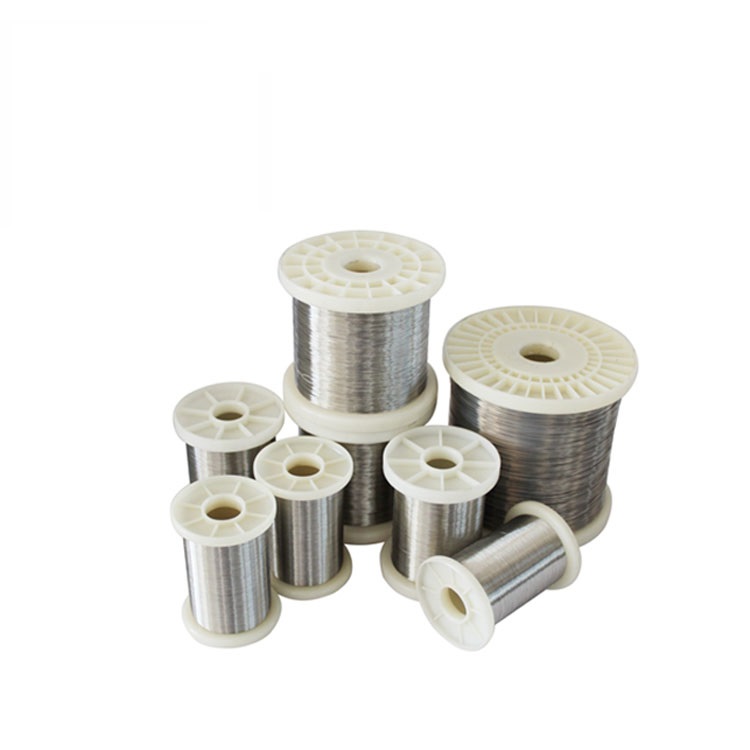A low-expansion nickel-iron alloy comprising 36% nickel. It has a low coefficient of expansion from cryogenic temperatures to roughly 500°C (930°F) and retains nearly constant dimensions over the range of normal atmospheric temperatures.
At cryogenic temperatures, Nilo 36 preserves its strength and toughness. As a result, it can be used in applications such as cryogenic engineering and laser components.
Invar 36 Wire material is especially significant to the aircraft and aerospace industries, military and defense, telecommunications industry, machine shops, and alloys used to create equipment for the solar industry to make solar panels. In land surveying, leveling rods manufactured of Invar 36 Wire are also utilized for high-precision height leveling. Nickel steel Invar 36 Wire is available as rods, sheets, coils, and plates.
Important Characteristics
- Alloy with little expansion.
- Maintains nearly constant dimensions across the average air temperature range.
- From cryogenic temperatures to around +500°C (+930°F), the coefficient of expansion is low.
- At cryogenic temperatures, it retains its strength and toughness.
What Exactly Is Invar Wire?
Invar, also known as FeNi36 (64FeNi in the US), is a nickel-iron alloy distinguished by its unusually low coefficient of thermal expansion (CTE). The name Invar is derived from the word invariable, which refers to its lack of expansion or contraction with temperature variations.
Is Invar More Durable Than Steel?
In terms of mechanical qualities, Invar is extremely comparable to steel. However, there are certain variations between Invar 36 and 304 stainless steel. Invar has a lower Young's modulus and specific stiffness, a lower micro yield strength, and a poorer thermal conductivity.
What Is The Purpose Of Invar?
Invar is a nickel-iron alloy with a low coefficient of thermal expansion. Because its length remains nearly constant with temperature change, it is utilized to form the clock's pendulum.
Is Invar Magnetic Or Not?
Characteristics in general
Invar is a low thermal expansivity iron-nickel austenitic alloy. It is strong, robust, ductile, and corrosion resistant; it is magnetic at temperatures below its Curie point but non-magnetic at temperatures above.





Comments